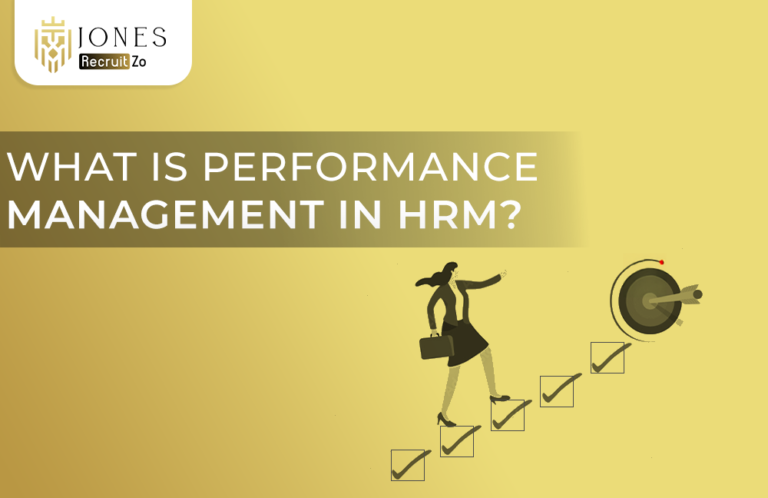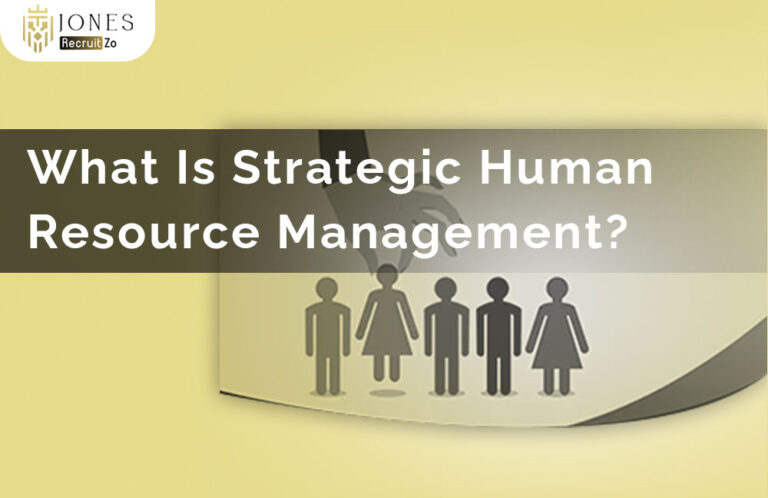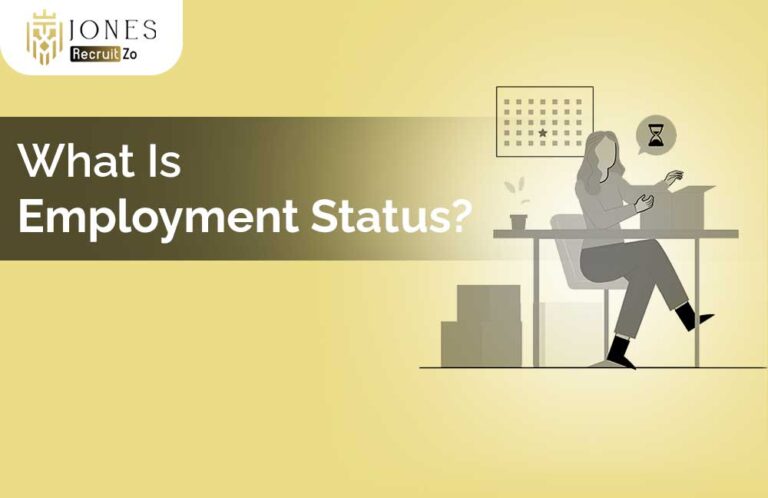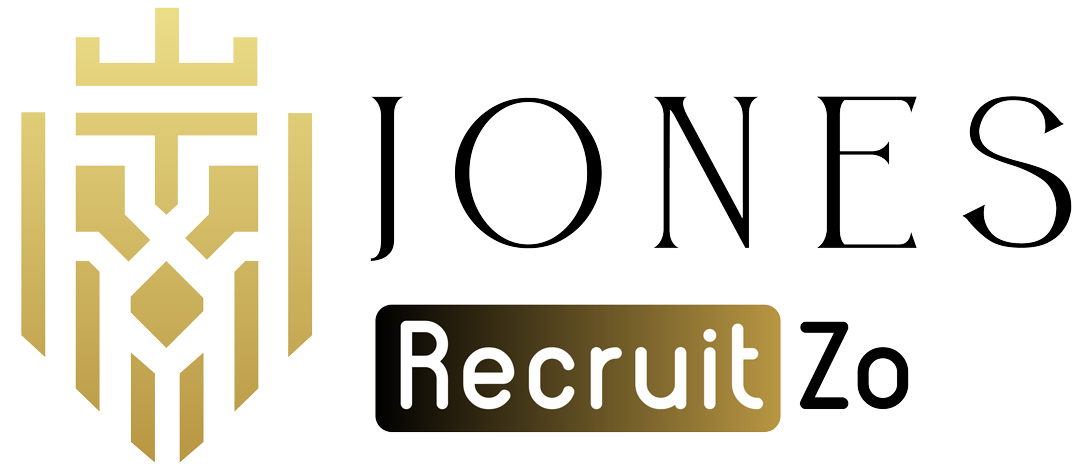What is Contract Staffing?
Contract staffing is for temporary employees hired for a stipulated time or duration of a project rather than for an indefinite or permanent basis. Such workers operate according to a contract, which specifies terms regarding their employment, such as duration, payment, and what they are expected to do.
Typically, contract staff are brought in to fill urgent or temporary needs, such as covering for absences, managing peak workloads, or contributing to short projects. Contract staffing gets into works in IT, marketing, engineering, healthcare, and creative services, where specialised skills may be asked to be hired on time.
Types of Contract Staffing
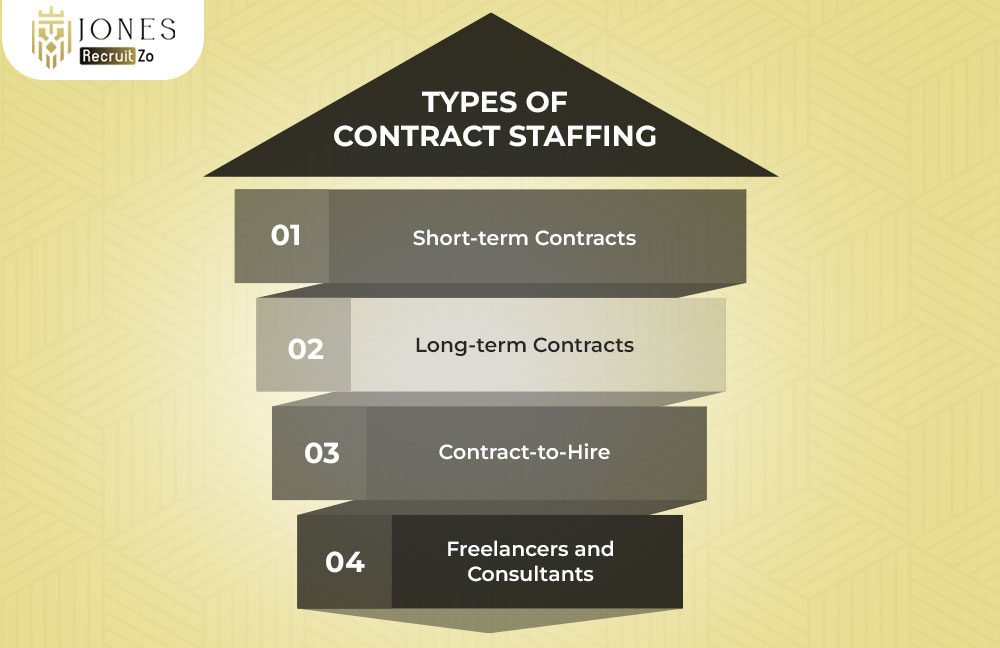
There are various forms of contract staffing, each serving different business needs depending on the project scope, duration, and goals.
-
Short-term Contracts
Generally, short-term contracts last anywhere from weeks to a few months so as to address urgent resource shortages. For seasonal work, event-based projects, or urgent deliverables that don’t need long-term commitment, a short-term contract is the right thing.
-
Long-term Contracts
Long-term contracts may stretch on for several months to even a year or more and are geared towards ongoing projects and extended leave coverage. These contracts act as a stabiliser between both parties while still exhibiting a degree of flexibility.
-
Contract-to-Hire
With contract-to-hire, a company gets to evaluate how a particular contractor performs, and upon satisfactory performance, the company can also choose to give them the full-time offer. This affords a trial period for both parties to weigh the long-term fit, minimising the chances of a wrong hire.
-
Freelancers and Consultants
Being freelancers or consultants generally means working for multiple clients. They are hired for their technical knowledge or creative input. They are paid per project or hour and remain responsible for their own taxes and benefits.
Benefits of Contract Staffing
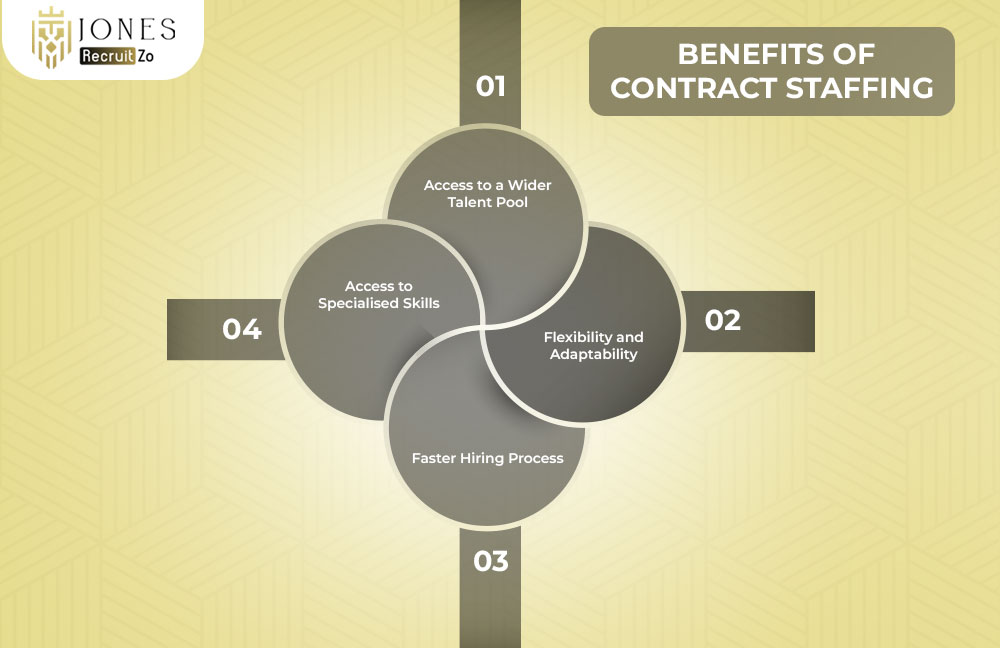
Contract staffing offers a range of advantages that help businesses remain agile and competitive in today’s dynamic work environment.
-
Access to a Wider Talent Pool
By way of freelance networks and staffing agencies, companies can recruit talent from different locations and backgrounds. This widens their reach to professionals who are high-calibre for a consultant project, yet may not be readily available for a full-time assignment.
-
Flexibility and Adaptability
The contract staffer will be employed in ways that physicians need to set up their work packages and do set up business continuity during market changes or sudden project needs.
-
Faster Hiring Process
In general, the recruitment of a contract employee involves fewer bureaucratic formalities than that of a permanent employee. Often, staffing agencies will have a list of candidates that have already undergone some initial screening and are ready to move into a position, which speeds up this phase.
-
Access to Specialised Skills
Many contract professionals are subject matter experts in their fields. They bring valuable experience and can hit the ground running, contributing immediately to project success without requiring extensive training.
Difference between contract staffing and permanent staffing
Contract staffing and permanent staffing differ mainly because of terms and commitment. In contract staffing, an employment relationship exists for a period with some fixed duration and, usually, for project work by client organisations. Employees are provided for a short period through an agency and might also not enjoy the benefits present for permanent employees.
Permanent staffing means hiring workers for long-term contracts with a majority of the benefits. They are considered to be a long-term investment in association with the strategic growth of the company.
What is the Process of Contract Staffing?
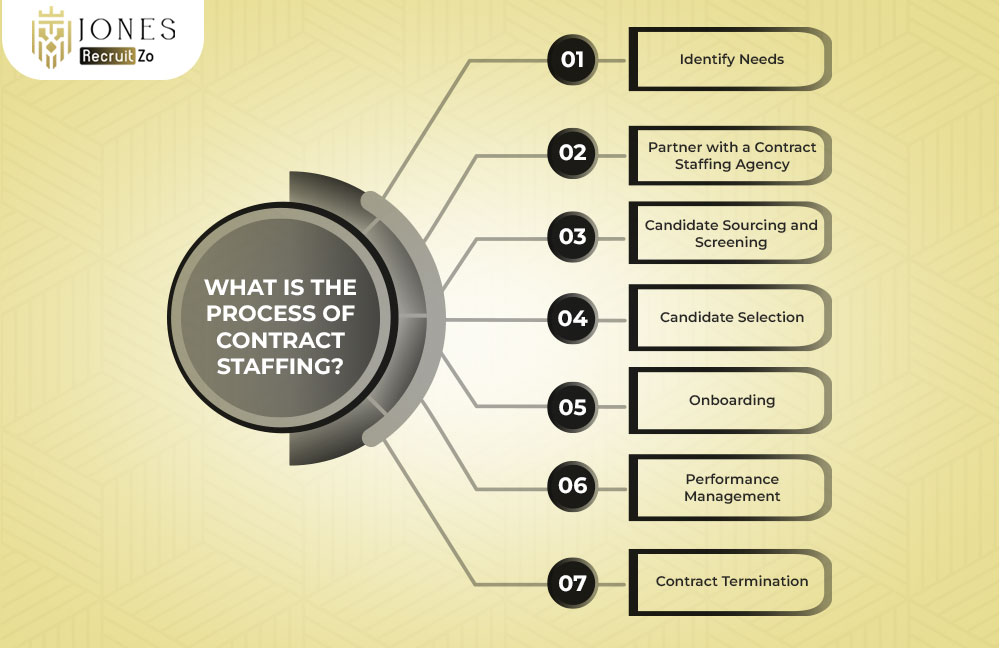
-
Identify Needs
The very first step is to understand what type of support a business needs. Is it short-term, long-term, or project-orientated? It is essential to define the role, skills required, and duration of the assignment before proceeding.
-
Partner with a Contract Staffing Agency
Many companies rove into legal waters by contracting staffing agencies. They can help identify, screen, and place candidates within a very short time span-a service for which employers would otherwise have to invest a lot of their own time.
-
Candidate Sourcing and Screening
When recommendations are provided early on, recruiters begin Sourcing for candidates through job boards, professional networks, or talent databases. An initial review is conducted to weed out unqualified applicants.
-
Candidate Selection
After the initial screening, interview, or skills assessment of shortlisted candidates is conducted. The second step is ordinarily faster than the usual recruitment since urgency is greater with contract-based positions.
-
Onboarding
Once hired, the primary focus of onboarding is to get him/her up and working as fast as possible. Quick orientation is given regarding his/her responsibilities and grants access to the various tools they will require until they are integrated into the team.
-
Performance Management
Contract staff are temporary, but their performance must be monitored to ensure their work remains of the highest quality. Regular feedback helps maintain alignment with expectations for both the staff and the employer.
-
Contract Termination
When the contract ends, employers may choose to release the employee, renew it, or offer them a permanent position. A smooth exit process is essential for maintaining good professional relationships.
FAQs
1) What is contract staffing?
The hiring mechanism wherein employees are contracted for a fixed tenure or project, as opposed against full-time permanent employment. Then it offers flexibility and the option of specialised skills for short or long durations.
2) What are the different types of contract staffing?
They include short-term contracts, long-term contracts, contract-to-hire roles, freelancers, and consultants. Each type of contract fulfils different needs of a business based on time, budget, and expertise.
3) What are the benefits of contract staffing?
Flexibility, less of a cost, hiring on quick notice, and maintaining access to skilled professionals while shunning any long-term commitment to them: those could be a few of them, making a move that helps to keep the business nimble and competitive.
4) What is the difference between contract staffing and permanent staffing?
Contract staffing is project – and temporary-based employment, whereas permanent staffing means long-term employment with full benefits. Contract staff usually have fewer obligations to their clients and tend to be managed on an agency or freelance basis.




